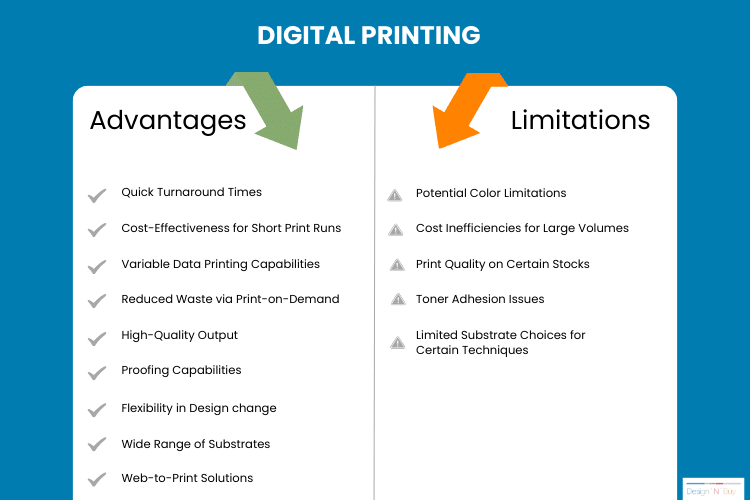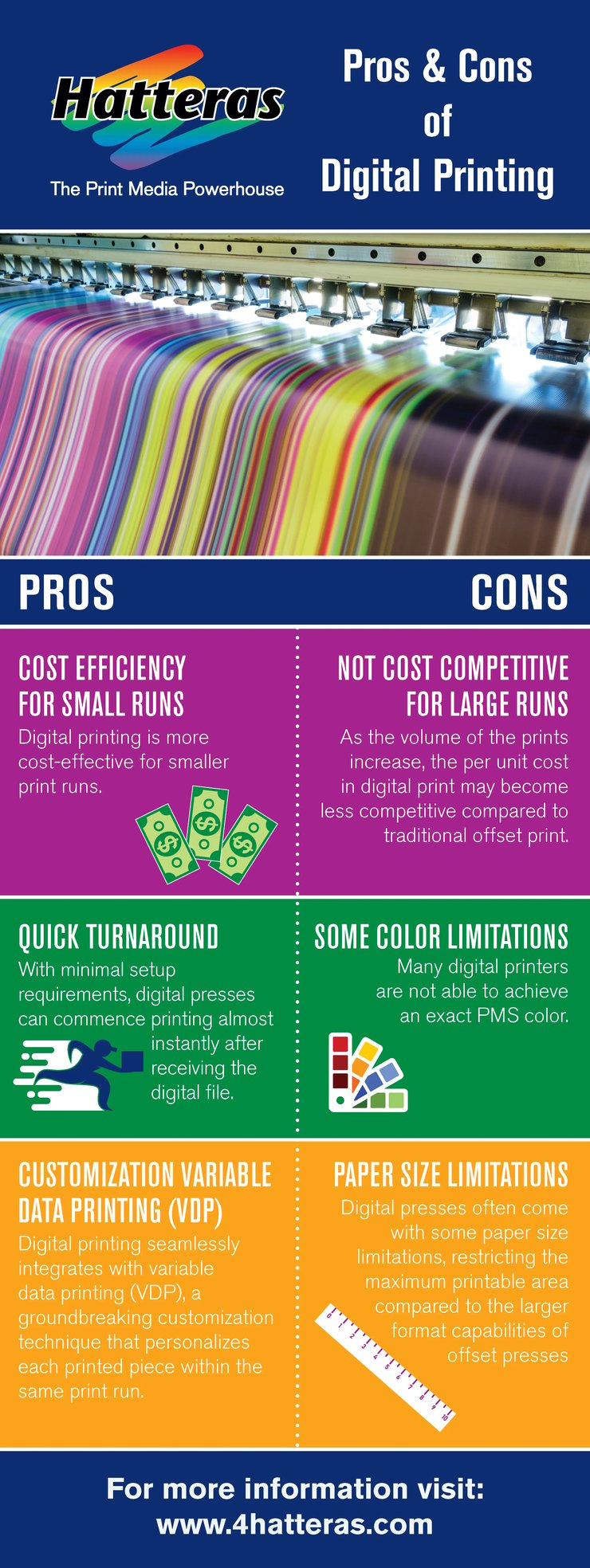10 Simple Techniques For Digital Printing
10 Simple Techniques For Digital Printing
Blog Article
Everything about Digital Printing
Table of ContentsAbout Digital PrintingThe Ultimate Guide To Digital PrintingThe 6-Minute Rule for Digital PrintingMore About Digital PrintingAll about Digital PrintingThe Only Guide for Digital Printing
Variable data printing, such as straight mail with individualized codes and addresses, is ideally matched for digital printing. Digital fast printing just needs four actions of layout, review, printing and binding to obtain everything done. Digital quick printing has an unrivaled benefit: print on need.According to PMMI, digital printing enables brand names and suppliers to react quickly to customer demands while improving the supply chain, decreasing warehousing expense and waste, and enjoying faster time to market. That all sounds terrific, yet just how does this modern technology do all that? The significant differentiator of these modern technologies is that there are no set up charges and no plates with electronic printing.
The 7-Minute Rule for Digital Printing
According to Wikipedia, the best difference between electronic printing and conventional methods such as lithography, flexography, gravure, or letterpress - Digital Printing is that there is no need to change printing plates in electronic printing, whereas in these analog printing methods home plates are repeatedly changed. This leads to quicker turnaround time and decreases expense when making use of digital printing.
Digital printing is very adaptable, so it's easy to make adjustments to the package style quickly. It all goes back to the plates.
With traditional printing methods, short-run printing is just not feasible. Due to the fact that a wonderful layout can make or break your product, digital printing continually creates premium, clear and vivid graphics each time.
Digital printing is the procedure of printing digital-based photos directly onto a variety of media substrates. There is no demand for a printing plate, unlike with offset printing. Digital files such as PDFs or desktop publishing data can be sent out directly to the electronic printing machine to publish theoretically, image paper, canvas, fabric, synthetics, cardstock and other substrates.
All about Digital Printing
According to PMMI, electronic printing permits brands and makers to respond swiftly to consumer needs while boosting the supply chain, lowering warehousing expense and waste, and appreciating faster time to market. That all audios excellent, yet just how does this innovation do all that? The major differentiator of these technologies is that there are no set up charges and no plates with digital printing.
According to Wikipedia, the greatest distinction between digital printing and typical approaches such as lithography, flexography, gravure, or letterpress is that there is no requirement to replace printing plates in electronic printing, whereas in these analog printing techniques the plates are consistently changed. This leads to quicker turnaround time and decreases cost when making use of digital printing.

Fascination About Digital Printing
More supply can mean even more waste down the road. With traditional printing methods, short-run printing is simply not feasible. Since an excellent layout can make or damage your product, digital printing continually produces high-grade, clear and colorful graphics each time. Digital printing on versatile pouches adds the bright, dynamic, and accurate graphics that virtually bid consumers to connect and touch them.

According to PMMI, electronic printing enables brand names and manufacturers to respond swiftly to customer demands while boosting the supply chain, reducing warehousing expense and waste, and appreciating faster time to market. That all sounds excellent, but how does this modern technology do all that? The major differentiator of additional reading these technologies is that from this source there are no set-up costs and no plates with electronic printing.
An Unbiased View of Digital Printing
This results in quicker turn-around time and decreases price when utilizing electronic printing.
Quick manufacturing indicates getting your product to market faster. It additionally indicates it's much easier and faster to make modifications later, when you change a dish, add a SKU, or create seasonal product packaging. Digital printing is very versatile, so it's easy to make changes to the plan style rapidly. It all returns to the plates.

Digital Printing for Dummies
Digital printing is the procedure of printing digital-based images straight onto a variety of media substratums. There is no need for a printing plate, unlike with countered printing. Digital files such as PDFs or desktop computer publishing data can be sent out directly to the electronic printing press to print theoretically, picture paper, canvas, textile, synthetics, cardstock and other substratums.
Report this page